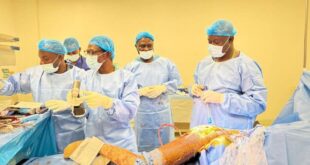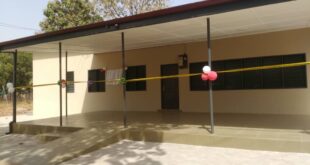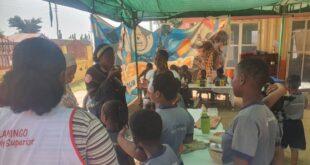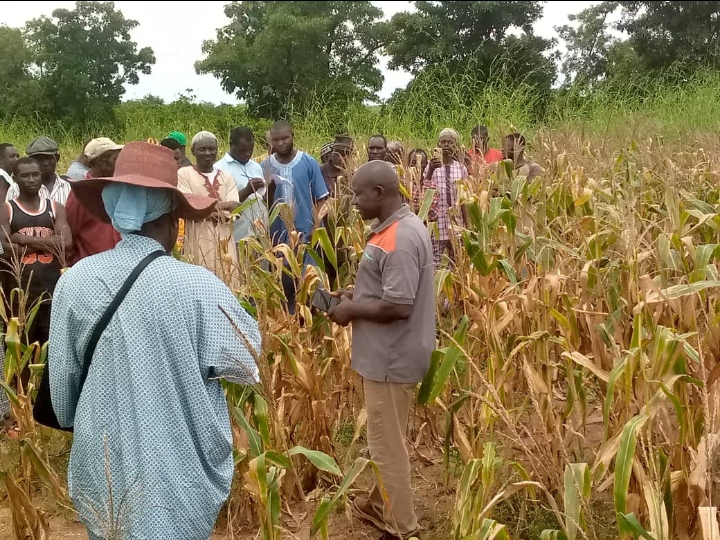 Tanina, Wa West – The continuous decline in food crop production within the West African Sub-region particularly Ghana has been attributed to many and varied factors.
Tanina, Wa West – The continuous decline in food crop production within the West African Sub-region particularly Ghana has been attributed to many and varied factors.
For instance, climate variability which manifest in various forms including long dry spells, pest and disease outbreaks and high temperatures often result in reduced crop yields and quality.
Against this background, the Savanna Agricultural Research Institute of the Council for Scientific and Industrial Research (CSIR-SARI) has introduced to farmers of Tanina in the Wa West District of the Upper West Region a stress tolerant and nutritionally enhanced hybrids maize varieties.
This came to light during a recent field visit by agricultural scientists and farmers at Tanina in the Upper West region of Ghana. The field visit was funded by Technologies for African Agricultural Transformation (TAAT).
The objective of the field visit was to introduce to the local farmers of Tanina the three new maize varieties and to encourage them to adopt them for planting because of their potential to increase in yields and contribute to improving food security and household incomes.
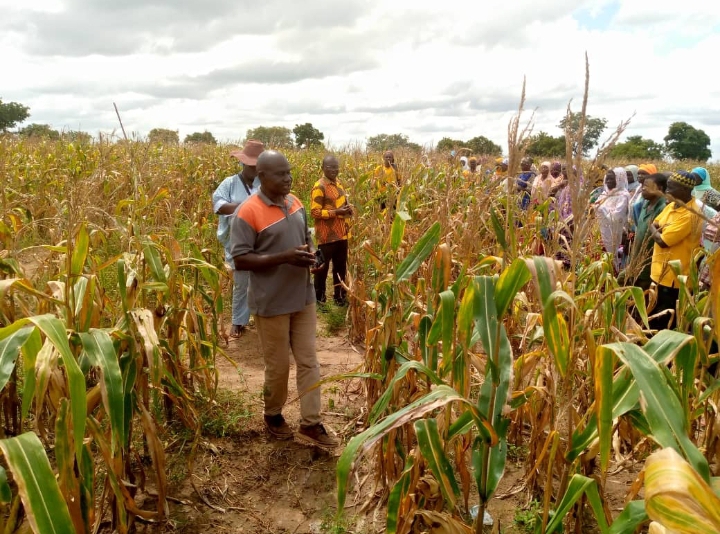 The visit was to also educate farmers about the importance and benefits of the new maize varieties and to demonstrate the nutritional advantages of enhanced hybrid maize.
The visit was to also educate farmers about the importance and benefits of the new maize varieties and to demonstrate the nutritional advantages of enhanced hybrid maize.
The event provided an opportunity for farmers to engage with agricultural experts and explore practical applications in their farming practices as well as learned about the benefits of the new hybrids: CSIR–Dimaali-Engee, CSIR–Adubi-Boyo and CSIR–Denbea.
According to Dr. Mahama G. Yakubu, an agronomist with CSIR-SARI at the Wa Station, SARI developed the stress-tolerant maize hybrids to mitigate the harsh weather conditions that crops faced in the region.
“These hybrids are not just resilient; they’re also nutritionally enhanced, providing vital nutrients density for healthier diets.”
He also noted that “The mission of CSIR-SARI is to empower farmers while ensuring food security and improved nutrition for all. With stress-tolerant and nutritionally enhanced maize hybrids, we’re cultivating hope and resilience for the future”.
On his part, Mr. Asieku Yahaya, a Reassert Scientist with CSIR-SARI emphasized the need for farmers to adhere to good agronomic practices to sustainably increase yield and quality of food crops.
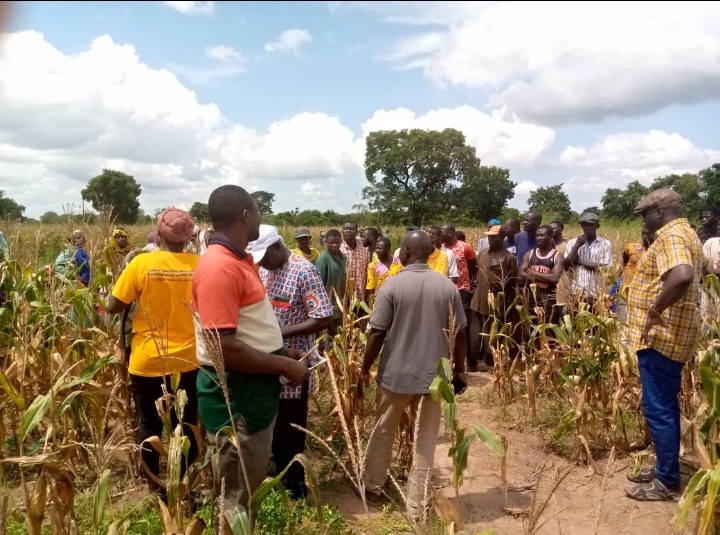 He indicated that agriculture was a big business, looking at the value chain from production (farming, fishing, poultry and livestock) through processing, haulage, marketing and research among others, which contributed to economic growth and development in Ghana.
He indicated that agriculture was a big business, looking at the value chain from production (farming, fishing, poultry and livestock) through processing, haulage, marketing and research among others, which contributed to economic growth and development in Ghana.
Dr. Yahaya Iddrisu, an Agriculture Economist with the CSIR-SARI said, farmers could increase yields and reduce losses from stress factors leading to greater financial stability for farming families.
“Farmers can benefit from selling higher-quality, nutritionally enhanced maize in local or regional markets.”
According to him, the Accelerated Genetic Gains (AGG) project has produced a number of drought tolerant maize varieties that were in the system.
The experiment, he said showed the resilience of the stress-tolerant varieties as most of the trial varieties were tolerant to drought.
He thus, asked smallholder farmers to adopt varieties that would increase their food security in times of adverse weather effects such as the one experienced this year leading to loss of many crops due to lack of rainfall over a long period of time.
Mr. Ibrahim Hashim, a Biometrician, advised the farmers to use organic manure, which are cheaper to obtain than synthetic fertilizers, to enhance their soil fertility levels.
He also advised them to practice crop rotation and conservation agriculture as a soil fertility enhancement strategy and also to reduce pests and diseases buildup.
Miss Habibata Saaka, a farmer admitted that there was a significant increase in yields and resilience amongst the new varieties against drought compared to traditional varieties. “I’ve seen how these new hybrids grow stronger and healthier. They give us hope for a better harvest”.
Generally, many of the farmers expressed enthusiasm about the potential of the stress-tolerant and nutritionally enhanced hybrids. Several requests for follow-up training sessions and access to seeds were made.
By SavannahNewsOnline.Com/Abdul-Nayaru Froko
 Savannah News Online Reporting Only What Matters Most
Savannah News Online Reporting Only What Matters Most
